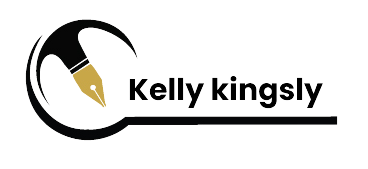Professor Kelly Kingsly
Independent; Copperstone University ; Charisma university
Date Written: July 29, 2020 Download this paper
Abstract
Globally, health care has recently known indisputable challenges. Even the strongest nations have seen their supposedly strong health systems crush down. No health organisation has been left un-disrupted with the coming of Covid-19. If even the mighty have fallen what becomes of the weak?
African countries at independence were organized and financed by governments which provided facilities, personnel and other inputs. By the 1980s, however economic downturn and the embrace of international monetary fund loans with stringent conditionality meant that many governments had to cut public spending on infrastructure and services, including healthcare and education. Consequently, many African governments stopped subsidizing public services and began implementing various costs – recovery measures in public services. The cost recovery era witnessed the introduction of OOP (out-of-pocket) for healthcare services, public water supply and consumables in schools. Thus, since the 1980s and 1990s, OOP by individuals and households have accounted for a larger scale of healthcare expenditure in many African countries of sub-Saharan Africa (1). These payments popularly known as user-fees or the ‘cash and carry’ health system in Ghana are known for raising the cost of healthcare, thus making it un-affordable for a large number of the population. In many sub-Saharan countries, governments rank healthcare relatively low among development priorities (2). For this reason, insufficient resources are allocated to healthcare, including drugs; which is often financed OOP (3)
Healthcare statistics in sub-Sahara Africa are generally poor. For example, although the region makes up only 11 per cent, of the world’s population; it accounts for é’ per cent of the global disease burden and commands less than 1 per cent of global expenditure (4). Although the WHP suggests thresholds of OOP for health as a guarantee of adequate financial protection is in the region of 15-20 per cent, residents of many African countries spend more (5). For example, OOP spending on health was between 27 – 37 per cent in Ghana in 2012 about 52 per cent in Kenya, 6405-70 per cent in Nigeria in the 1998 – 2008 period: while in South Africa, the government contributes about 42 per cent of all expenditures on health. The remaining 58 per cent is paid by private sources insurance premiums and OOP.
The United Nations recommends minimum required budgetary allocation to health is 15 per cent, many African countries fall below this minimum in their budgetary allocations. In 2007 more than half of the 53 African countries spent less than $50 per person (as average) on health (6). Of the total expenditure, 30 per cent came from governments, 20 per cent from donors and 50 per cent from private sources of which 71 per cent was paid by patients themselves, the so-called out-of-pocket-payments.
The dire picture of the healthcare system in the world and particularly in sub-Saharan Africa described above, coupled with Africa’s status as a ‘low-income’ region where poverty is a major barrier to accessing healthcare and underscores the need to rethink the health system.
To talk of healthcare systems, we must first consider the elements that make up this system. If the target is having a better health system then the individual elements making up the system must be reviewed. Knowing what it is to be what is has been and what it could be, will be a good step forward.
Keywords: HEALTH CARE, Finance, Public Policy, Global Health Care
Suggested Citation: Kingsly, Professor kelly, The Global State of Health Care System (July 29, 2020). Available at SSRN: https://ssrn.com/abstract=3663356 or http://dx.doi.org/10.2139/ssrn.3663356
